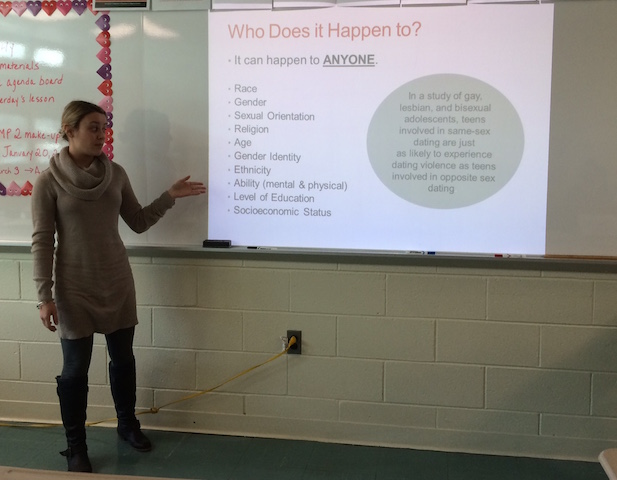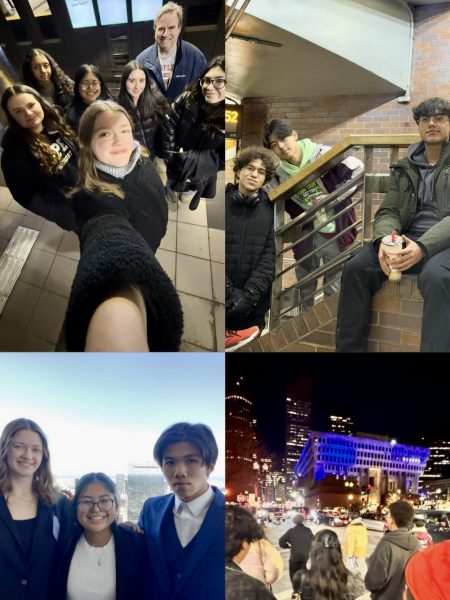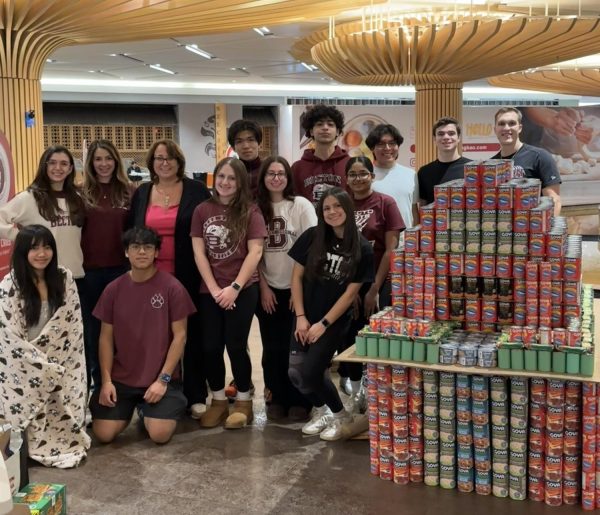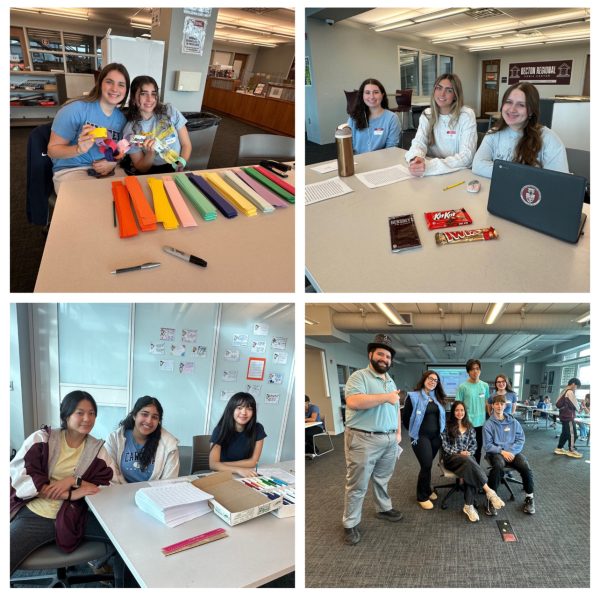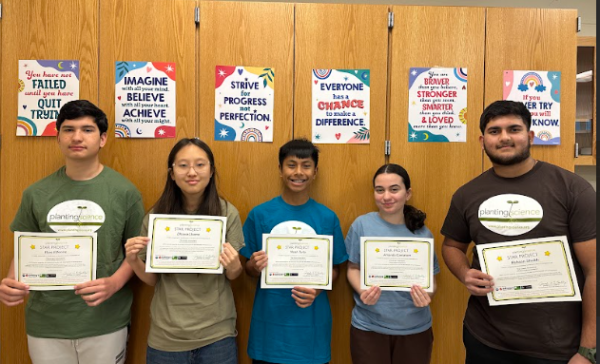Girls Helping Girls January meeting informs its members about dating violence
This past Wednesday, the Girls Helping Girls club welcomed Caitlyn Eckert from Healing Space, a sexual violence resource center located at the YWCA in Bergen County, who informed the girls about the dangers and facts regarding dating violence.
The speaker noted that teen dating violence is a pattern of controlling behavior that somebody uses against a girlfriend, boyfriend, exclusive or nonexclusive interest, or even a friend. Dating abuse can be physical, emotional, and psychological. Abuse is not rare; it can happen to anyone.
Abuse is a learned behavior. Sometimes people witness it while growing up. Other times, they learn it from friends or popular culture. It is most important to know that abuse is a choice – and it is not one that anyone has to make.
Physical violence is any use of physical force with the intention to cause pain on the other person. Types of physical abuse include kicking, punching, slapping, pinching, pushing, and biting. “One of the forms of abuse that people don’t really think about is when the person threatens to hurt and or kill themselves if you leave them,” said Ms. Eckert.
Any individual can become a victim of dating violence. Contrary to popular belief, abuse is not limited to boys abusing girls. Also, studies show that gay, lesbian, and bisexual adolescence teens involved in same sex relationships are just as likely to experience dating violence.
Sadly, one out of three teens knows someone that has gone through some type of relationship abuse. Eighty percent of victims of physical abuse continue to date their abuser, and nearly 1.5 million high school students nationwide experience physical abuse from a dating partner in a single year.
Halfway through the meeting, the speaker shared a story about her own experience with enduring dating violence. She talked about a relationship she had a few years ago with a man that was constantly texting her. “I was so obsessed with answering his every message. He was telling me how he was going to hurt himself. He would write ‘You don’t love me, you don’t care about me.’ It was just this psychological torment,” Ms. Eckert said.
Violent adolescent relationships can have serious ramifications being that they put victims at a higher risk for substance abuse, eating disorders, risky sexual behavior, and further domestic violence. Half of the victims of both dating violence and rape attempt suicide, compared to 12.5 percent of non-abused females and 5.4 percent of non-abused males.
Last but certainly not least, one out of 11 boys reported being physically, emotionally, or sexually abused by their partner, but did not feel comfortable seeking support. Only 33 percent of teens who were in a violent relationship ever told anyone about the abuse.
If one is ever in need of advice or help, he or she can call 1-866-331-9474, text “loveis” to 22522, or just click the chat button on the website loveisrespect.org. All of these outlets are available 24 hours a day, seven days a week. If you would like to contact the speaker, her information is 201-881-1754 or ceckert@ywcabergencounty.org. Students can also contact the school’s SAC counselor, Ms. Klamerus, in the guidance office.

During her spare time, Yomarie likes reading books, drawing, and binge watching The Vampire Diaries. When she’s not listening to Demi Lovato,...


